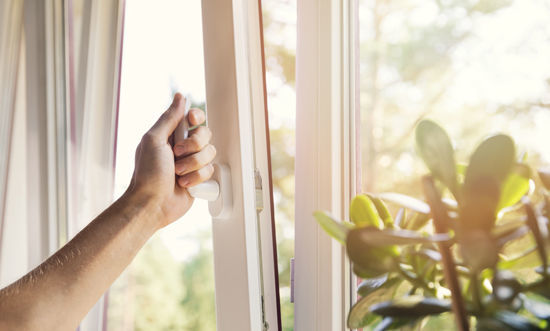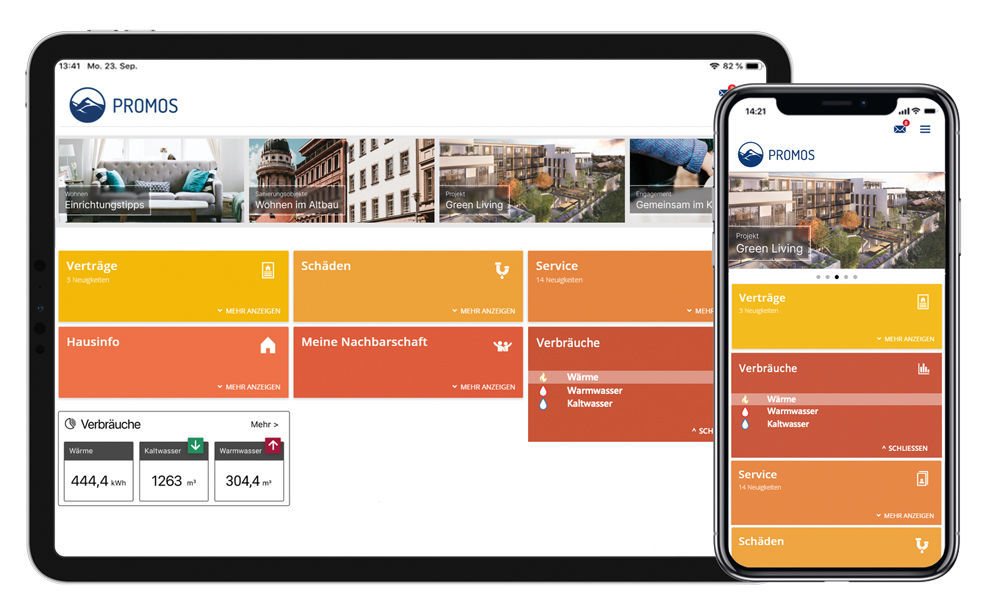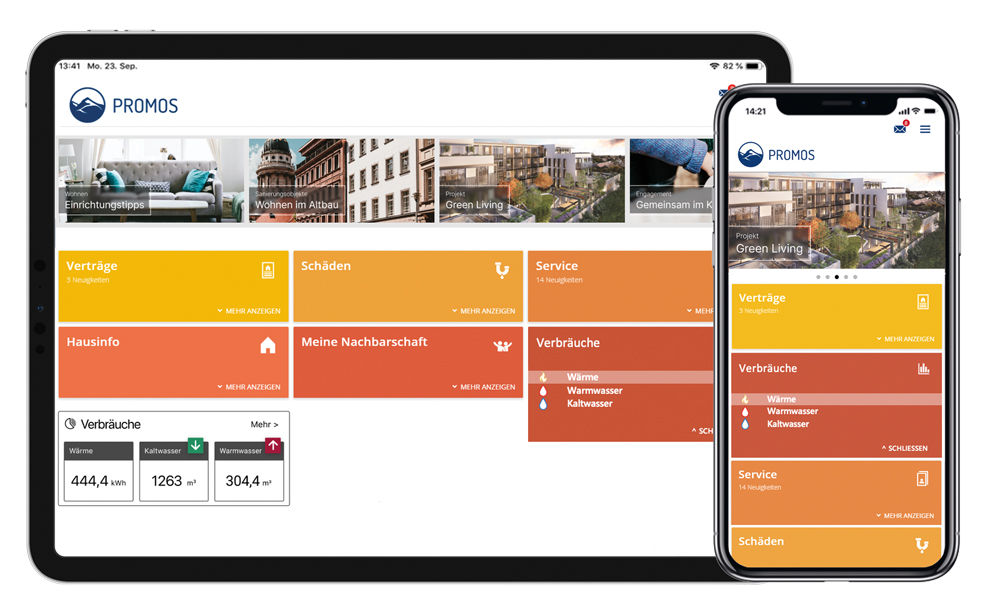3 things tenants should know about the EED
3 things tenants should know about the EED
Dear tenants, the energy transition is knocking at the door. The EED is slated to reduce energy consumption in buildings across Europe by 32.5 percent by 2030 – a key challenge of our time. Confronting these challenges is not solely the responsibility of building owners. You also have a part to play in the future. With this in mind, we’ve compiled 3 aspects of the EED that you should be familiar with as a tenant:
What is the EED and what does it have to do with the Heating Costs Ordinance?
The Energy Efficiency Directive (EED) is an important EU instrument for reducing the energy consumption in buildings.
As an important part of the European Union’s energy law, it aims to address climate change by improving the energy efficiency of newly built properties and existing buildings. The logic is quite simple: assuming that at least a third of Germany’s total energy consumption goes towards heating buildings or heating hot water, the energy efficiency increase in this area and the reduction of energy consumption play a decisive role in boosting climate protection.
As all EU member states must transfer the Energy Efficiency Directive into national law, the existing German Heating Costs Ordinance was amended accordingly in 2021. In Germany, the Heating Costs Ordinance regulates the billing of heating costs and hot water in rental and residential property relationships, i.e. for all buildings with at least two users and a common heating system. This is also why the EED entails no new requirements for single-family homes or apartments that have their own heating system such as gas heating.
What is the purpose of the Energy Efficiency Directive?
The EED is intended to increase the energy efficiency of buildings and thus contribute to climate protection.
You can only conserve natural resources and reduce your energy requirements if you’re aware of your consumption habits. As a result, if you as a tenant or property owner receive more transparent information about your current consumption values more frequently, you can also better understand how your individual behaviour affects energy consumption. This puts you in a position to react in a timely manner, control your consumption more efficiently and therefore reduce both costs and emissions. The approach of the new legislation is thus to first raise residents’ awareness of this issue by providing specific information on their individual consumption. In the next step, it then aims to reduce energy consumption in order to improve the energy efficiency of buildings in the long term. Ultimately everyone benefits – both our climate and our wallets.
What changes does the EED bring for you as a resident?
Tenants benefit from digital measurement technology and monthly consumption data.
Tenants can expect two important changes:
Remote reading for heat meters and heating cost allocators
First of all, you’ll receive transparent information about your individual consumption on a regular basis in the future. This should make it easier than ever to save energy! Your landlord will need your consumption data in order to provide you with this information. Regular data acquisition requires modern digital measurement technology with radio transmission. The EED is now making this mandatory by requiring heat meters and heating cost allocators to be remotely readable and interoperable. These requirements apply to all newly installed meters. Existing devices must be replaced by the end of 2026. Tenants benefit doubly in this regard: they can check their own consumption throughout the year, and they don’t have to let a service technician into the apartment for meter reading. The devices are interoperable since they output consumption values in open data formats. This means that the data can be easily read out to service providers, resulting in a competitive situation intended to generate cost benefits for tenants.
Monthly disclosure obligation
Your landlord will have different options for providing you with this information once a month in the future. Whether in paper form or electronically via e-mail, app or web portal – the most important thing is that your landlord actively informs you of when and where you can view your consumption data. Keep in mind that incorrect or non-existent data and failure to install remotely readable devices entitle you to reduce the calculated heating costs in your bill by 3 percent. It’s worth taking a close look and doing some research!
Your benefits at a glance
Full transparency
Regular messages help you assess your personal energy behaviour.
More convenience
Thanks to measurement technology with radio transmission, you no longer need to arrange in-person meter reading appointments.
Simple savings
If you use less energy, you pay less. Your wallet benefits too.
Your contribution to climate protection
Current consumption data provides the basis for the economical use of energy and resources.
Energy Efficiency Directive (EED) FAQs
Who is affected by the EED?
The Energy Efficiency Directive (EED) contains clear calls to action with the aim of reducing energy consumption in buildings across Europe. All stakeholders are involved. As a consumer and tenant, you are informed about your current monthly consumption data so that you can use energy more consciously and adjust your consumption behaviour. The owner or landlord is responsible for providing you with this consumption data on a monthly basis.
What changes are coming for you as a tenant?
If remotely readable measuring devices are already installed in your home, you as tenant will be informed of your consumption data on a monthly basis starting in 2022. This is meant to encourage more awareness of the resources involved in your energy consumption – that is, all the energy required to heat your home or generate hot water. Read our energy saving tips for more information!
If your home isn’t already equipped with remote-readable measuring and recording technology, your landlord is obliged to retrofit the corresponding technology by the end of 2026 at the latest.
What will your bill look like in the future?
In order to keep you up to date about your current energy consumption in a transparent manner, your heating bill will contain additional information in the future. For example, your current consumption will be compared to the previous month, or the bill may note the average consumption of other residents. Landlords are also obliged to list energy prices, total energy costs, emissions data, the energy mix used and information on the taxes and charges levied. But watch out! This additional information can generally not be provided until the next settlement period. This means that most tenants may have to wait another year.
How do you receive your consumption data as a tenant?
The consumption data can be provided in different ways, so the delivery form may vary from landlord to landlord. The Energy Efficiency Directive only stipulates that the consumption data must reach you immediately without you having to search for it. This can be done in paper form or electronically, such as by e-mail. A web portal or app like the ones from easysquare are also an option as long as you are actively informed that up-to-date information is available.
What data is read out for your consumption data?
Your monthly consumption data consists of the compiled data from the heat and hot water meters as well as heating cost allocators from your building. In the future, this data must be read out and recorded wirelessly, provided that remote reading is already supported. This generally involves the transmission of current consumption values as well as those of the previous year, the reference date and data for the unique assignment of the measuring device, such as a serial number or production number.
The installed meters must ensure state-of-the-art data protection and data security as laid out in the specifications of the German Federal Office for Information Security (BSI). In most cases, consumption values are only assigned to a specific apartment at a later point. In the case of unauthorised access along the transmission route, this ensures that no conclusions can be drawn about your identity or usage behaviour.
What costs do you incur as a tenant?
The German tenants’ association recently raised concerns that the changes to the law may lead to additional costs. The increased expenditure for consumption analysis leads to higher billing costs for landlords, which they could theoretically pass on to tenants. The cost of newly installed equipment could reportedly also be used to justify increases in rents. To duly consider whether and in what form tenants incur additional costs, the amended Heating Costs Ordinance is to be evaluated after three years. The government will then examine whether costs need to be capped.
How can you easily save water and heating costs?
Regular consumption data from your landlord is the first step towards a more conscious use of resources such as heating energy and water. Read our energy saving tips to see how you can actively reduce your heating costs and water consumption.
Find out moreOur solution for landlords
With digital solutions such as the tenant app or the easysquare web portal, landlords and apartment owners can conveniently provide their residents with individual consumption data throughout the year – in a quick, climate-conscious manner with graphic illustrations.
Onboarding for tenants
Does your landlord already use the tenant app or the web portal powered by easysquare and would you like to use the digital service too in order to regularly access your consumption information? Have you also already received post from your landlord? Then you should get the ball rolling right away!
Read on to discover how easy it is to start using your landlord’s tenant app – assuming, of course, your property management uses the digital solutions from easysquare.
Further information for tenants
Would you like more information about your individual consumption statement? Your landlord can help you out. Get in touch directly!







